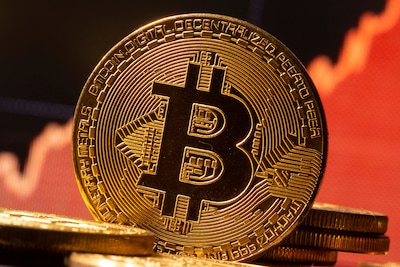
Early on December 10, cryptocurrencies were trading in the red. The worldwide crypto market capitalization has decreased to $2.28 trillion, down 3.40 percent from the previous day. The overall cryptocurrency market volume over the last 24 hours has increased by 2.96 percent to $105.34 billion.
The overall volume in DeFi (Decentralized finance) is currently $15.04 billion, accounting for 14.28 percent of the entire 24-hour volume in the crypto market. The overall volume of all stable coins is now $83.40 billion, accounting for 79.18 percent of the total 24-hour volume of the cryptocurrency market.
Bitcoin’s price is currently at Rs 39.28 lakh, and it has a 40.24 percent market share.
According to Reuters, the proposed legislation in India that would prohibit the use of cryptocurrencies as a form of payment also intends to make people who break the law susceptible to arrest without a warrant and detention without bail.
The Indian government intends to impose a “wide restriction on all operations by any individual on mining, creating, holding, selling, (or) dealing” in digital currencies as a “medium of exchange, store of value, and a unit of account,” according to the bill’s summary. Furthermore, breaking any of these laws would be “cognizable,” meaning it might lead to an arrest without a warrant, and “non bailable,” it warned.
Former Reserve Bank of India Governor Duvvuri Subbarao has also stated that if cryptocurrency is authorised in India, the central bank will lose control over money supply and inflation management.
“Because cryptocurrency is backed by algorithms, there is concern that the central bank’s power over money supply and inflation management may be lost. There are also concerns that crypto would cause monetary policy to be disrupted “, said Subbarao at a webinar co-hosted by the National Stock Exchange (NSE) and New York University’s Stern School of Business. Rao also stated that due to capital limitations, India’s argument for launching a central bank digital currency (CBDC) may be weak.
In a statement, the CII said that crypto or digital tokens should be recognised as securities of a peculiar class to which existing securities regulations will not apply, and that a new set of regulations relevant to the circumstances should be developed and implemented.
This would mean that regulatory attention would be focused on dealings and custody rather than issuance (unless if issuance involves a public Initial Coin Offering (ICO) by an issuer based in India), it noted.